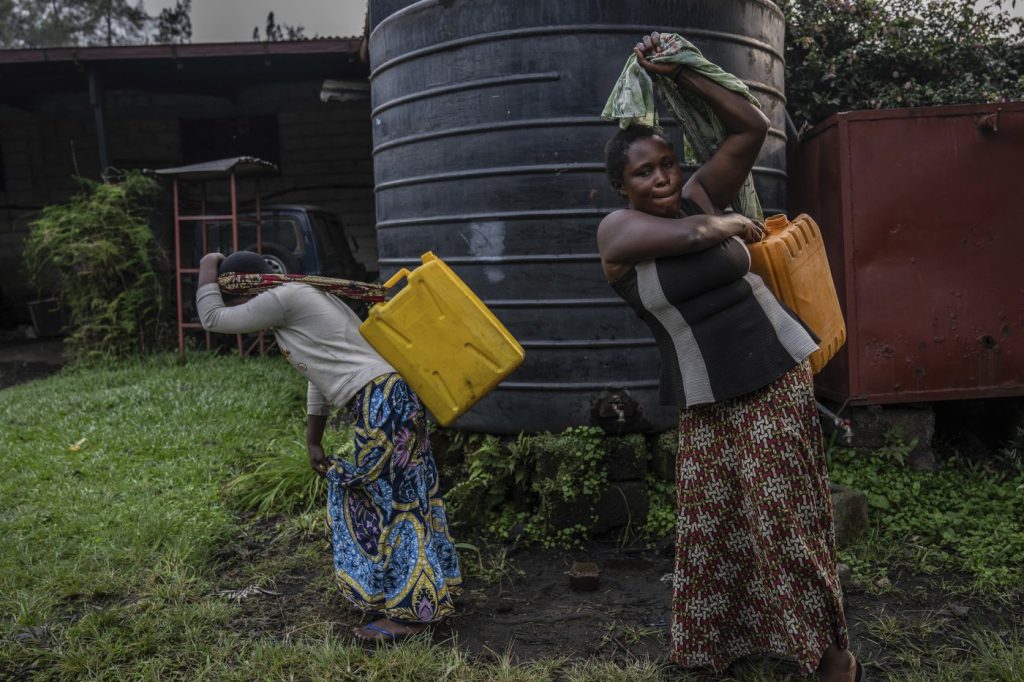The ongoing violence in eastern Congo has left many families, such as that of Zawadi Sifa, to live in fear and uncertainty. Sifa, a mother of seven, has experienced a tumultuous life marked by displacement due to the conflict. Her story echoes that of thousands of others who have been forced to flee amidst the escalating violence in the region, particularly following the recent advancement of M23 rebels, who are alleged to be backed by Rwanda, into the key city of Goma.
For Sifa, each time she gives birth, her family is uprooted, seeking refuge from the conflict. The M23 rebels, one of the more than 100 armed groups active in Eastern Congo, have intensified their attacks, taking over Goma's provincial capital, North Kivu, in a significant offensive against government forces. After originally finding shelter in a displacement camp in Sake, which was later seized by the rebels, Sifa and her family moved to a camp on the city's outskirts. Again, as the rebel threat loomed, they sought shelter in a parish within Goma, joining hundreds of others in a desperate search for safety.
The situation in Goma has been dire. Last week, it was reported that the M23 rebels had declared control over the city, leading to a temporary restoration of essential services such as water and electricity, and the reopening of schools and shops. However, aid workers continue to collect bodies from the streets under the supervision of M23 patrols. The violent escalation since late January has resulted in approximately 3,000 deaths and nearly as many injuries, worsening an already complex humanitarian crisis that has displaced 4.6 million people over decades of conflict in the region.
The displacement camps surrounding Goma, housing more than 300,000 refugees, have come under heavy bombardment due to the ongoing fighting. As a result, numerous families, including Sifa's, have had to flee again, often searching for refuge in churches, schools, or with host families. Humanitarian organizations have stressed that many individuals already displaced are returning to unsafe areas lacking basic necessities such as housing and clean water.
Sifa's journey of fleeing began in 2012 from her village, Kasharo. Though she returned for a time, renewed fighting forced her family to a displacement camp in Sake. Following the rebels' takeover of Sake, her family relocated to Rusayo before eventually finding refuge at the parish in Goma. At first, they sought refuge in the parish school, but they were later told to sleep outside. When the rebels declared themselves the new authority, the local priest asked them to leave, further intensifying their uncertain circumstances.
Organizations such as Mercy Corps have raised concerns about the wellbeing of returning displaced individuals. Despite claims from M23 leadership that they have "liberated" Goma and have established a peaceful administration, U.N. human rights experts have reported serious dangers, especially for women and girls, which include incidents of sexual violence, targeted killings, and forced conscriptions. The U.N. Secretary-General Antonio Guterres has urgently called for an end to the violence, emphasizing the need for mediation to resolve the conflict.
For Sifa, returning to her village is out of the question, as she fears for her safety and that of her children. She stated, "I learned that those who tried to return were raped and others died." Currently, her family has chosen to remain in Goma, even if it means living on the streets. Struggling daily to provide for her seven children, many of whom are ill, Sifa relies on begging or her dwindling savings for food and water. Cooking a simple meal of ugali, made from corn flour, she expressed the despair shared by many displaced families: "Since 2012, we have been fleeing the war... I have nowhere else to go." This ongoing cycle of violence starkly illustrates the deep-seated humanitarian crisis in eastern Congo.










